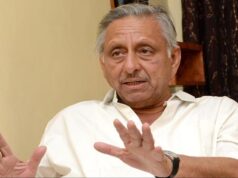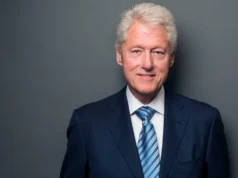Once an opponent of authoritarian governments, Trump’s secretary of state now brags about rescinding visas and deporting people with impunity.
President Nayib Bukele of El Salvador may have discovered that the laughing emoji perfectly captures Secretary of State Marco Rubio’s new strategy against autocratic governments.
Following the departure of a US flight carrying Venezuelans to his nation, Bukele posted on X, following a federal district judge’s order for the government to halt the trip: “Oopsie…It’s too late. He included the “face with tears of joy” motif.
Rubio reposted it.
Many who have followed Rubio’s career found it extremely inconsistent that he would ignore a US court about immigrants who were sent to a cruel prison in an authoritarian nation.
As “the son of immigrants and exiles,” Rubio began his political career by denouncing human rights violations in nations like Cuba, which his parents fled during Fulgencio Batista’s dictatorship.
However, as one of Trump’s top lieutenants, Rubio has now placed his entire support behind an inhumane and unfair removal of immigrants from the United States without due process, in addition to being willing to collaborate with the aggressive and dishonest Bukele.
That is a significant change from the Marco Rubio of 2008, when he was the first Cuban American to serve as speaker of the Florida House. The Tea Party’s anti-immigration zeal was only beginning to take shape at the time.
Numerous proposals were introduced by Florida lawmakers of both parties, ranging from Republican plans to ban government assistance for undocumented adults to a Democratic lawmaker’s plan to mandate that police report suspected undocumented immigrants. However, Rubio was far more aware of the political fallout from an immigration crackdown in that incarnation. He informed lawmakers that he didn’t want to come seen as “anti-immigrant” and declined to hear any of the legislation.
During his speech at the Republican National Convention four years later, Rubio praised his upbringing by immigrant parents. He praised the potential of a nation “founded on the principle that every person has God-given rights” and the virtues of “American exceptionalism.”
After a Venezuelan man found guilty of killing Georgia nursing student Laken Riley was given more due process than the Cuban business owner with no criminal record who was snatched from his driveway by ICE agents in Miami two weeks ago, it is difficult to imagine Rubio making that speech today. (According to the man’s wife, the man had been trying to get citizenship for years by navigating the maze of bureaucracy and renewing work permits.)
Today’s deportation practices are also very different from the future Rubio envisioned in 2013, when, as a member of the “Gang of Eight,” a bipartisan group of senators, he put up an immigration reform plan that would have given 11 million immigrants a route to citizenship but was never approved. At the time, Rubio stated that pulling people “out of the shadows” was “in our national interest.” “This is our identity. We are the world’s most empathetic country.
Rubio was still on the side of law and compassion three years ago. He chastised Bukele for using the military to arrest thousands of individuals without following the proper procedures after declaring a state of emergency due to massive gang violence. Bukele “very openly criticizes and mocks the US and other Western institutions,” according to Rubio, who described the scenario as “a really troubling one.”
However, Rubio is now the one making fun of him. After canceling hundreds of visas, he reportedly boasted, “I take away their visa every time I find one of these lunatics.”
He has directed his employees to search visa applicants’ social media profiles and deport anyone found to be causing a “ruckus.”
Indeed, the State Department has extensive power to deny a visa to anyone they deem a threat. However, the law stipulates that it must be for extremely particular foreign policy purposes.
Numerous international students who were swept up in Rubio’s sweep have been cleared of any crimes and seem to have been singled out because the administration disapproves of their pro-Palestinian remarks. Some have been denied due process or imprisoned. Some are married to US citizens or permanent residents.
Although he is unsure of how Rubio is reconciling the inconsistencies between his current and previous positions, Dario Moreno, a political science professor at Florida International University in Miami who co-taught numerous classes with Rubio, believes that some of the administration’s immigration policies carry political risk.
He informed me that Latinos in South Florida, including Cuban Americans, “probably don’t agree with the roundup.”
“It doesn’t bother people to put away affluent students at Ivy League schools or people who appear to be gang members,” he said. They are displeased with the latest Trump order that mandates a half-million individuals from Cuba, Haiti, Nicaragua, and Venezuela depart the United States by the end of the month, despite the fact that they were granted work permits in the country through a humanitarian parole program that was established during the Biden administration.
Additionally, academics inform me that they perceive perilous similarities between the agendas of the Trump and Castro administrations. They also appeared shocked that Rubio didn’t notice them.
Lillian Guerra, a professor of Cuban and Caribbean history at the University of Florida, said, “[Castro’s] rhetoric was basically the same as Trump’s, which is, if you don’t agree, get out of this country, and if you’re not the right kind of Cuban, then you don’t belong here.” “One cannot comprehend how Marco Rubio could be supporting these policies and serving as a spokesperson for them unless he is ignorant of the true elements of the authoritarian state in Cuba.”
Rubio’s reversal is a result of political pragmatism and foreign policy realism, according to Eduardo Gamarra, a professor of politics and international affairs at Florida International University.
Rubio has switched allegiance to Trump since he is unlikely to seek for elected office again until he runs for president. “The president has rejected multilateralism and any logic of American pluralism,” Gamarra clarified, adding that he was hired to “serve only one person.”
Additionally, he stated that the “realist” school of thinking holds that a nation’s national interests take precedence above its ideological foundations. According to Gamarra, the strategy enables the US to “expel people to a country that is known for cruel and inhumane treatment.” “Therefore, torture by Fidel is bad, but torture by Bukele is good.”
Rubio and Bukele may now laugh together because of this. Anyone who doesn’t understand is being made fun of.
Additional Opinion From Bloomberg:
The editorial board, Bloomberg LP, and its owners do not necessarily agree with the views expressed in this commentary.
Mary Ellen Klas writes columns for Bloomberg Opinion about politics and policy. She has almost thirty years of experience covering politics and government, having previously served as the head of the Miami Herald’s capital desk.







